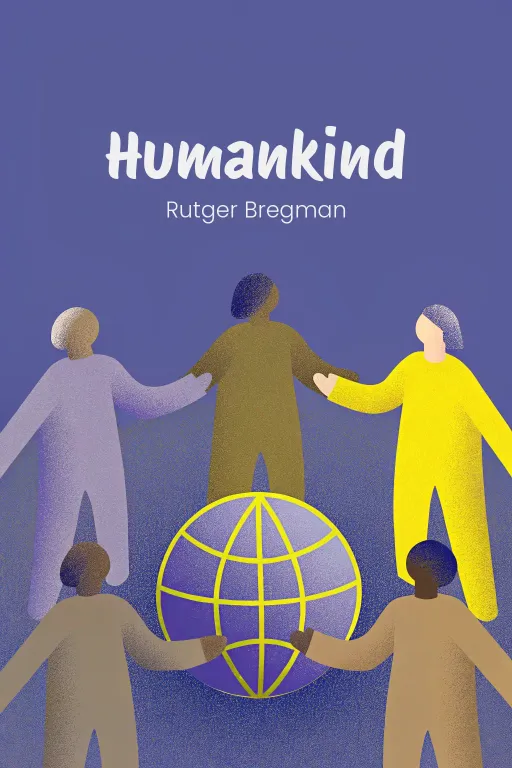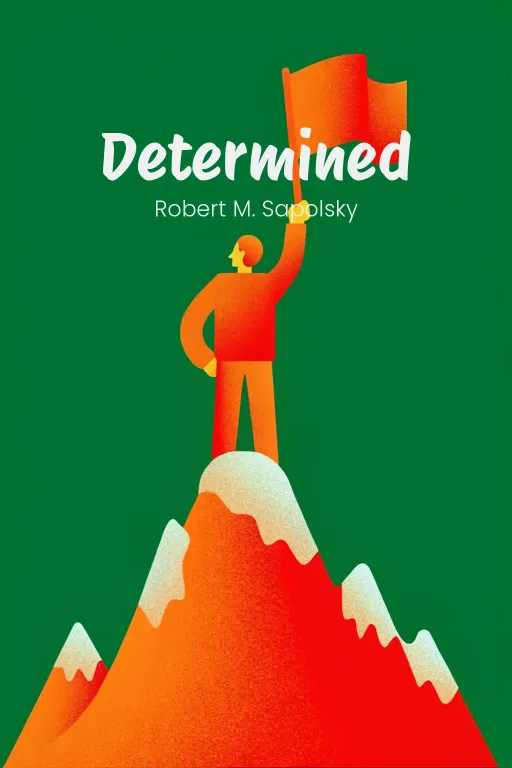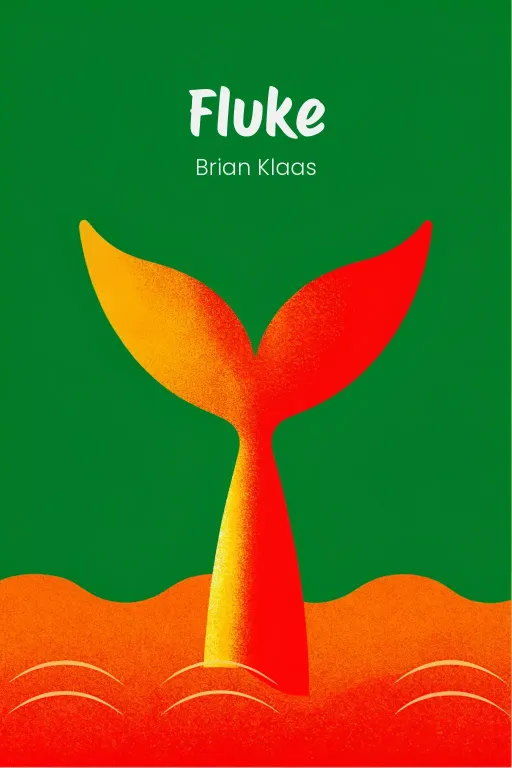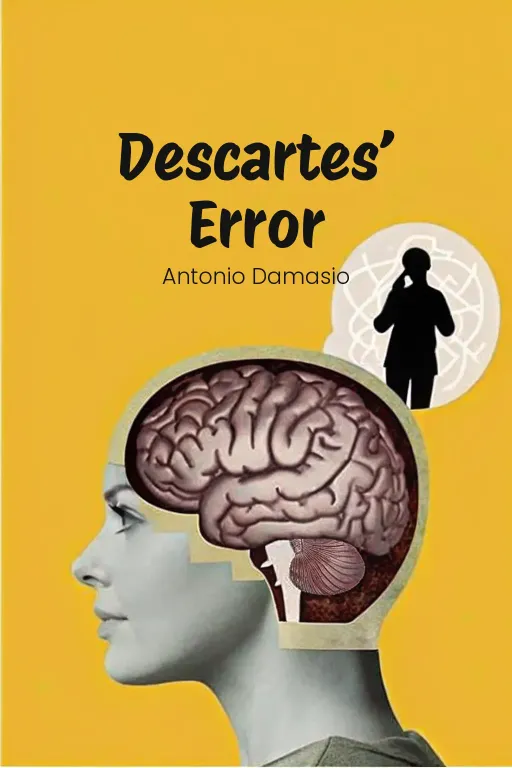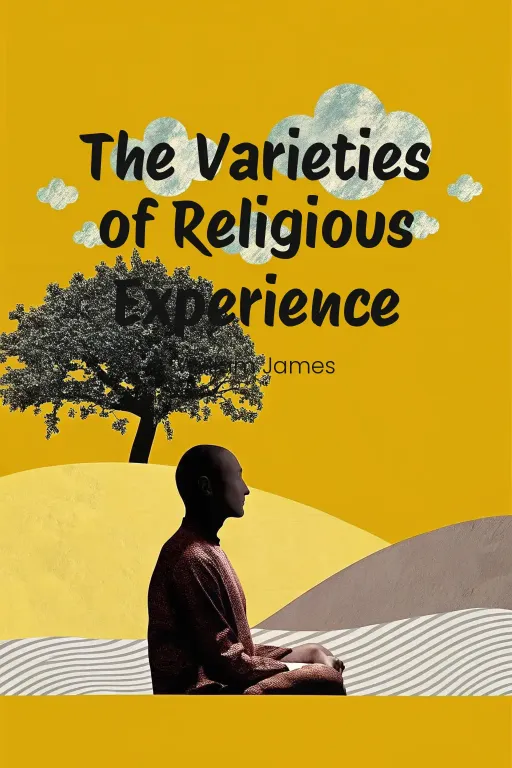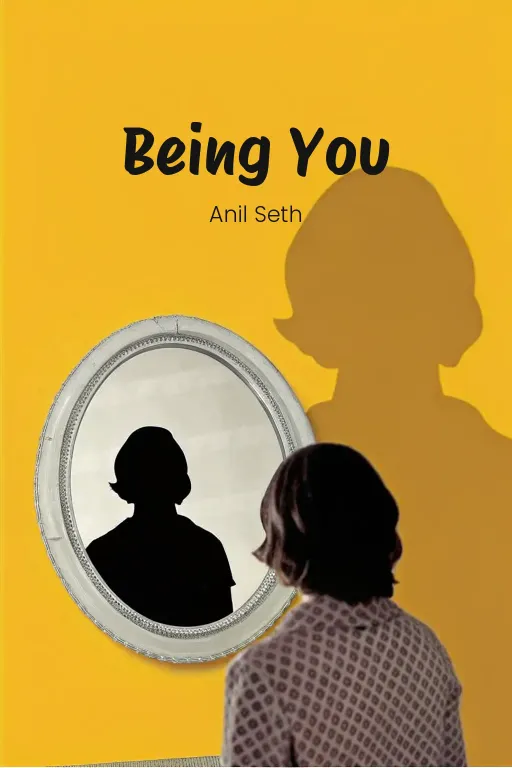
Embrace the Chaos: How to Thrive in Uncertainty
Podcast by The Mindful Minute with Autumn and Rachel
Chance, Chaos, and Why Everything We Do Matters
Introduction
Part 1
Autumn: Okay, everyone, welcome! Today, we're tackling something that really shakes up how we see the world: the role of randomness, chaos, and how interconnected everything really is. Rachel: Chaos and randomness, huh? Sounds about right for my life, Autumn. Seriously though, this sounds like one of those moments where we realize we have way less control than we think. Autumn: Exactly! We tend to believe in plans and order, but history, science, our relationships... they're all shaped by chance way more than we acknowledge. Rachel: So, it's more than just missing a bus, right? Autumn: Way more. We're looking at how randomness and chaotic systems influence pretty much everything. This isn't about a predictable path; it's about understanding and even appreciating the uncertainty. Rachel: So, life's not a highway; it's more like a massive, chaotic intersection with unexpected turns, got it. Autumn: Absolutely. And we’re going to try to make sense of that intersection. First, we'll explore how chaos has changed history and science – think the butterfly effect, right? Little things creating huge changes. Rachel: Alright, I'm ready for some chaos theory. What's next? Autumn: We'll look at how everything's interconnected. How people, ecosystems, even tiny actions can have big ripple effects across the world. Rachel: Okay, so we're all connected. Sounds… both promising and a little scary. Autumn: It is! And finally, we’ll dive into decision-making when the future's uncertain. How do we make choices, lead, or even just get through the day when we can't predict what's coming? Rachel: That's a big undertaking, Autumn. But I'm game. History, science, life advice, all mixed with chaos. Let’s see where this goes.
The Nature of Randomness and Chaos
Part 2
Autumn: So, Rachel, let’s dive into this messy world of randomness and chaos. I was thinking we could start with talking about history? I mean, it's riddled with examples. Got one you'd like to share? Rachel: Absolutely! I’m all in. Tell me something I won’t believe happened. Something that clearly illustrates how chaos has shaped the course of events in History. Autumn: Alright, let's start with a story that is absolutely mind-blowing, the story of Kyoto during World War II. So, initially, Kyoto was on the list to be nuked... yeah, I know. It was this major cultural and industrial center, right? Looked great on paper to the military. Rachel: Kyoto? The city known for its temples? Autumn: Yeah, but then, get this – Secretary of War Henry Stimson, he remembered that he had honeymooned there, like, decades before. Rachel: Wait, a honeymoon? You’re telling me that cherry blossoms and a romantic getaway potentially saved a whole city? That's insane! Autumn: I know, right? Apparently, Stimson had these really strong, personal memories of the place – the temples, the gardens, the beauty. And he just couldn’t bring himself to wipe it off the map. He pushed hard to get Kyoto off that target list, and because of him, over 100,000 people were spared, and this incredible piece of cultural history survived. Rachel: Hold on. So, one man’s nostalgia trip basically altered the course of military strategy? That's either incredibly beautiful – or incredibly disturbing, depending on your perspective. Autumn: It's both, actually. This was a massive decision that shifted the trajectory of a nation, maybe even the world, and it hinged on a memory. It shouts out how fragile, how unpredictable “rational” decision-making can be. Then, compare to Kokura, the second target. Rachel: Ah, Kokura’s Luck. I’ve heard the term, but the story always strikes me as too implausible to be true. Let me guess—clouds saved the day? Autumn: Exactly. Kokura was saved by the clouds. The sky was just too cloudy, it made it impossible for the bomber pilots to see their target. They had limited fuel, time was running out, so they went to Nagasaki instead, which, tragically, suffered the consequences. So many lives spared in Kokura because it get cloudy! Rachel: So Kokura gets a free pass thanks to a cloudy day, and Nagasaki draws the short straw. This feels less strategic and more like the universe is playing dice. Autumn: Totally! It wasn’t planned decisions or calculated strategies. It was just sheer... randomness. These two quick examples of history illustrate just how much hinges on just trivial, uncontrollable, hard-to-predict factors! Rachel: Okay, so, if we're talking about history being this chaotic grab bag of randomness, how deep does this rabbit hole go? Is it all about clouds and sentimental vacations? Autumn: Oh, it doesn’t end with history, no way. This ripple effect of chance sort of spreads into everything else... like science. Take the “butterfly effect” from chaos theory. Edward Lorenz, a meteorologist back in the 60s, showed how even slight alterations in the starting conditions can spiral into massive chaos. His weather simulations showed that a butterfly flapping its wings in Brazil could actually cause a tornado in Texas. Rachel: So, meteorology meets philosophy. Great. But does this mean we can’t predict the weather—or anything for that matter? Autumn: Not exactly. Chaos theory helps us understand the limits of what we can predict. Weather patterns, markets, ecosystems, even societies – they’re these massively complex pieces. Yes, chaos theory doesn’t mean we can’t predict anything, but it underscores how susceptible these pieces are to seemingly small changes. Rachel: Okay, so evolution’s another example, right? Random mutations trigger massive changes over time. But how does that tie back to the chaos we’re talking about? Autumn: Exactly, you're totally getting it!. Evolution is a great illustration. Take Richard Lenski’s long-term E. coli experiment. So he takes these identical bacteria cultures and puts them into identical environments. But, even under these controlled conditions, one culture randomly developed the ability to metabolize citrate, and E. coli usually can't do that. That random mutation completely changed how that group evolved going forward. Rachel: So, evolution isn’t just “survival of the fittest.” It’s also “survival of the lucky”? Autumn: Yep, exactly! Evolution might seem like it's moving in a certain direction, or making progress... but randomness and chance are really what's driving the changes. And that same randomness, when viewed at a larger scale, shapes not species but civilizations, cultures, and even individual lives. Rachel: Which brings us back to the question—if randomness is such a dominant force, how much agency do we really have? Isn’t admitting that everything could just be chance a little paralyzing? Autumn: I get the feeling. But acknowledging the role of randomness doesn’t mean we are powerless. Instead of trying to control everything, we can focus on being adaptable and responsive. Life isn’t a rigid checklist; it’s an ever-changing interplay of planned actions and unexpected opportunities. Rachel: So you’re saying I shouldn’t toss my to-do list entirely, but maybe I should plan for the unplanned? Autumn: Sure. Embracing chaos isn’t about giving up—it’s about seeing the beauty and potential in uncertainty, in understanding that a missed flight today might lead to something incredible tomorrow.
Interconnectedness in Human Lives and Systems
Part 3
Autumn: So, Rachel, sticking with this idea of embracing the chaos, let's really dig into interconnectedness. As I mentioned, it's not just randomness existing on its own; it's about how our actions, both big and small, have consequences that spread through systems and connect us all. Can I explain it in more detail? Rachel: Yes, please do. I'm intrigued. Autumn: Okay, well, interconnectedness really emphasizes how our individual actions, even the ones that seem completely insignificant, can set off changes that go way beyond their original context. Think about the story of Ivan, who survived being stranded at sea all because of a lost soccer ball. A couple of kids lost that ball playing near the shore days before. It just happened to float in Ivan's direction while he was struggling to stay afloat. Rachel: Hold on a second—are you saying a casual “Oops, the ball's gone!” moment turned into the equivalent of a floating lifeline? That sounds like a movie script. Autumn: It does sound a bit far-fetched doesn't it? But it's an amazing example of how interconnected systems work. Even the most ordinary, everyday actions like losing a ball, dropping a coin, even taking a slightly different route to work, can start off a chain of events that nobody could have predicted. Sociologists sometimes call this "network effects." They look at how small actions can spread through interconnected networks to create significant outcomes. Rachel: Right, so, if I can't find my keys tomorrow, does that mean I'm setting off a butterfly effect? Will my mishap somehow ripple out and lead to… global harmony? Autumn: Maybe not global harmony, but you never know! The main point is to understand the wider effects of how systems operate whether that's ecological, social, or even digital. Like Ivan and the soccer ball, interconnectedness shows us that nothing really exists in isolation. Interactions sort of build on each other in really complex ways, and the results are often pretty unpredictable. Rachel: Okay, I get that. But in a world that's obsessed with trying to control and predict everything, isn't this idea of interconnectedness a bit... inconvenient? Especially when you look at systems that are designed to model outcomes, like social media or politics. I mean, just one little post can start a whole international movement, or one weird tweet can cause a company's stock to plummet overnight. Autumn: Exactly! Our digital world amplifies interconnectedness almost exponentially. What used to be small local ripples are now global waves. A single hashtag can mobilize millions to protest or change policies, while a fast trend can change how businesses operate. That's why understanding interconnectedness is more important than ever before. If our actions, no matter how small, can have such a big impact, the stakes become incredibly high. Rachel: And it's not just individual actions that contribute to unpredictability, is it? You mentioned before that collective behavior can grow into really massive events, even catastrophes. Are we talking about something like swarms of locusts here? Autumn: Precisely. Take the locust plagues in the U.S. in the 19th century. These weren't just regular swarms – they were huge, covering areas about the size of California. Usually, locusts are solitary creatures. But when they get crowded together, hormonal changes make them behave collectively, forming swarms that come down in incredibly destructive waves. It's an example of self-organized criticality. Rachel: Self-organized what now? That sounds like something a comic book villain would come up with. Autumn: <Laughs> It's a concept from complexity science. Basically, it means that in some systems, small changes, like a rise in population density for locusts, can push the system towards a tipping point, which leads to massive, unpredictable events like swarming. Humans are similar, actually. Think about a bank run – one person decides to take out their savings because they're scared, then others follow, and suddenly the whole system collapses. Rachel: So, we're all just really advanced grasshoppers waiting for a chance to reach a tipping point? Autumn: In a way, yes! Collective human behavior follows similar patterns. Political movements, economic crises, even internet crazes, are all examples of interconnected systems where individual actions combine to create something much bigger. It reminds us that the line between order and chaos can be very thin, especially in large, interconnected societies. Rachel: Okay, but what about when nature itself sets the stage, like geography? That has to play a role in the way these systems are all tangled up together, right? Autumn: Definitely. Geography really shapes interconnectedness in lots of ways. Think about Britain's history. Thousands of years ago, a massive landslide separated what is now Britain from Europe and turned it into an island. That geological change fundamentally shaped British society, which allowed for naval dominance, trade, and empire-building. Rachel: Wow, so, from a landslide in the Stone Age to the British Empire ruling the seas. That's a crazy long domino effect. Autumn: Exactly. And it didn't stop there. Britain's isolation and its reliance on timber for its navy started a whole series of interconnected events. For example, the Pine Tree Riot in the American colonies, which was a resistance against British rules on cutting down white pines for naval use, helped spark revolutionary feelings. Rachel: So, a prehistoric landslide indirectly leads to the American Revolution? That's... incredible. Autumn: It really highlights how interconnected everything is. Geography isn't just about physical landscapes; it's about how human choices interact with those landscapes to create cultural, economic, and political legacies. You might think of a natural feature like a river or a mountain pass as just part of the environment, but in many cases, it can be a key factor in shaping human history. Rachel: Which brings us back to this whole idea that systems, whether they're ecosystems, societies, or economies, are not just linear. They're these interconnected, unpredictable webs. Autumn: Exactly! And once you start seeing these connections, you can understand just how incredibly adaptable and yet how fragile these systems can be. It teaches us to appreciate the role of randomness and how our actions, regardless of how insignificant they might seem, contribute to a larger, interconnected whole.
The Fallibility of Perception and Human Decision-Making
Part 4
Autumn: So, recognizing how interconnected everything is naturally makes you wonder about how we actually see the world and make decisions, right? It’s one thing to “say” we’re part of this chaotic, web-like world, but it’s another to really think about how our brains deal with all that unpredictability. Rachel: Yeah, because let's be honest, nobody wants to admit their brain is more like a buggy app than some super-advanced AI. So, are we talking about how we interpret all that chaos and then make choices? Autumn: Exactly! The fact that we humans aren’t perfect at perceiving and deciding things is key here. We’re kind of programmed to see patterns even when they aren’t really there, to simplify complex stuff way too much, and to think we have control when, well, we usually don’t. Things like cognitive biases, that tension between our logical side and our emotional side, and our need to believe we can predict stuff are all part of it. Rachel: Ah, so the very tools we use to understand the world are actually setting us up to fail? How’s that for a plot twist? Let’s start with this pattern-seeking thing, because we humans seem obsessed with finding meaning in, like, everything. Autumn: Totally. Cognitive biases are a big part of that. Our brains evolved to find patterns to stay alive – connecting the dots could mean avoiding danger. But we don’t just switch that off when we’re dealing with complicated stuff. Rachel: So, instead of dodging sabertooth tigers, we’re coming up with these grand stories about why the stock market crashed or how revolutions happen? Autumn: Yep. We grab onto simple cause-and-effect explanations because uncertainty is just…uncomfortable. Look at Richard Lenski’s Long-Term Evolution Experiment with E. coli. Scientists had these identical bacteria growing in the same environment, and for ages, everything was predictable – better at using glucose, exactly as you’d expect. Then, boom! Out of nowhere, one group evolved to metabolize citrate. Rachel: So, predictable progress… until it wasn’t predictable anymore? Autumn: Exactly! That sudden ability to use citrate wasn’t part of some logical plan; it was a random mutation. It’s a reminder that chance plays just as big a role in evolution – and life – as deliberate progress. And yet, we’re constantly trying to force deterministic narratives that ignore that randomness. Rachel: Which explains why we jump to conclusions like, "Oh, the revolution was caused by inequality," or "The economic crash was all because of bad policy." Never mind the million little things happening behind the scenes. Autumn: Right. It’s way easier to point to one thing than to deal with a messy bunch of factors. But if we accept randomness, we might see history and life as way more open-ended than we usually think. Rachel: That feels…unsettling, though, doesn’t it? Because if you can’t explain things with neat patterns, how do you even make decisions? Isn’t that where being logical comes in? Autumn: In theory, yes. But just how much rationality dominates is complicated by emotions, context, and us just being limited in what we can process. The economist Herbert Simon came up with the term "bounded rationality" to describe this. It’s basically saying that our decisions are limited by the information we have, the time we have to think about it, and our brainpower. Rachel: Okay, so we’re trying to do math homework, but we have a broken calculator, the lights are flickering, and someone’s blasting music next door? Autumn: Exactly! A great example is Obama’s decision about the raid on Osama bin Laden’s compound. His team looked at intelligence, thought about the odds, and weighed the potential consequences, but there were so many variables involved. Rachel: Let me guess, they couldn’t just plug it all into an Excel sheet and get the definitive answer? Autumn: Nope. Even with all the data, Obama’s decision came down to something less concrete – a gut feeling about the situation. That interplay between rational analysis and intuition is at the heart of a lot of big decisions. Rachel: So, when people say, "trust your gut," there’s actually something to it – but only after you’ve looked at all the facts first? Autumn: Exactly. It’s not about ditching logic altogether. It’s about knowing its limits and letting your intuition fill in the gaps. Also, there’s our deeply ingrained need to feel in control. Rachel: Which I bet is also, mostly, an illusion? Autumn: Often, yeah. People crave predictability, but the systems we try to control – like the markets, or the weather, or even other people – are way more chaotic than we think. The International Monetary Fund, for example, makes all these detailed economic forecasts, but after 15 years, they had an awful track record. When countries were about to go into recession, the IMF never predicted it. Not once! Rachel: So all those fancy graphs? Just educated guesses then? Autumn: Not entirely, but they’re based on models that assume things will stay stable and don’t account for randomness. Predicting what people will do – with individual choices, world events, and just plain luck – is really tricky. Then, you get extreme cases, like Charles Whitman. Rachel: The Texas Tower Sniper? How does that fit into all this illusion of control stuff? Autumn: Whitman’s case shows how much our actions depend on things we don’t really understand or control. After he killed 14 people in a horrible act of violence, they found a tumor pressing against his amygdala, the part of the brain that deals with emotion and decision-making. Rachel: So, you’re saying his actions might not have been entirely his fault? Autumn: Exactly. Cases like Whitman’s challenge basic ideas about morality, blame, even free will. If a brain tumor can affect someone’s behavior, how much responsibility do they really have? And it’s not just tumors – environmental factors, how you were raised, random things that happen to you – all of that shapes who we are. Rachel: That's… unnerving, to be honest. How do we even begin to navigate a world where control is, like, slipping through our fingers all the time? Autumn: Sounds daunting, but recognizing all this is the first step in making better decisions. Instead of fixed strategies, we need to be adaptable and accept that uncertainty is just part of life. Individually, that might mean being humble and open to change. And as a society, it means creating systems that can withstand the unexpected. Rachel: Okay, so ditch the rigid 10-step plans. Got it. But I have to ask – if randomness, emotions, and crazy systems are so powerful, does being rational even matter? Or are we just lying to ourselves? Autumn: Rationality absolutely matters – it’s just not the only thing that does anymore. It’s one tool among many. And when you combine rational thinking with emotional awareness and a willingness to adapt, you’re way better equipped to deal with whatever life throws at you.
Conclusion
Part 5
Autumn: So, today we've really dug into this fascinating dance between chaos, randomness, and how everything's connected, and how they shape our world. From historical moments, like Kyoto being spared, to scientific ideas like chaos theory and the butterfly effect, we’ve seen how small things can have huge impacts. Rachel: Right, and we talked about how interconnected systems – whether it’s nature, societies, even our own choices – tie us together in this big web where every little thing we do can have unpredictable results. Autumn: And we can't forget how bad humans are at making decisions! We really want control and to see patterns, even though the world is often way beyond our understanding or ability to predict. Rachel: Okay, so what's the big message here, Autumn? Is it just that everything's chaotic and random? Autumn: Not at all! The point is to accept uncertainty. To see that randomness plays a role, but also to appreciate how important it is to be able to adapt. Life isn’t about trying to control everything. It’s about learning to respond to an unpredictable world with curiosity and flexibility. Rachel: So, maybe the best way to deal with chaos isn’t to run from it, but to learn how to dance with it? Autumn: Exactly! Whether it’s in our own lives, the decisions we make, or the systems we create, understanding and appreciating the unpredictable can open us up to richer experiences and deeper understandings. Rachel: Chaos, randomness, and adaptability – it’s a lot to take in. But honestly, it makes this whole crazy map of life feel a bit more exciting, doesn't it? Autumn: Couldn’t agree more, Rachel. So, here's to embracing a life full of uncertainty, spontaneity, and the incredible connections that bind us all together.
